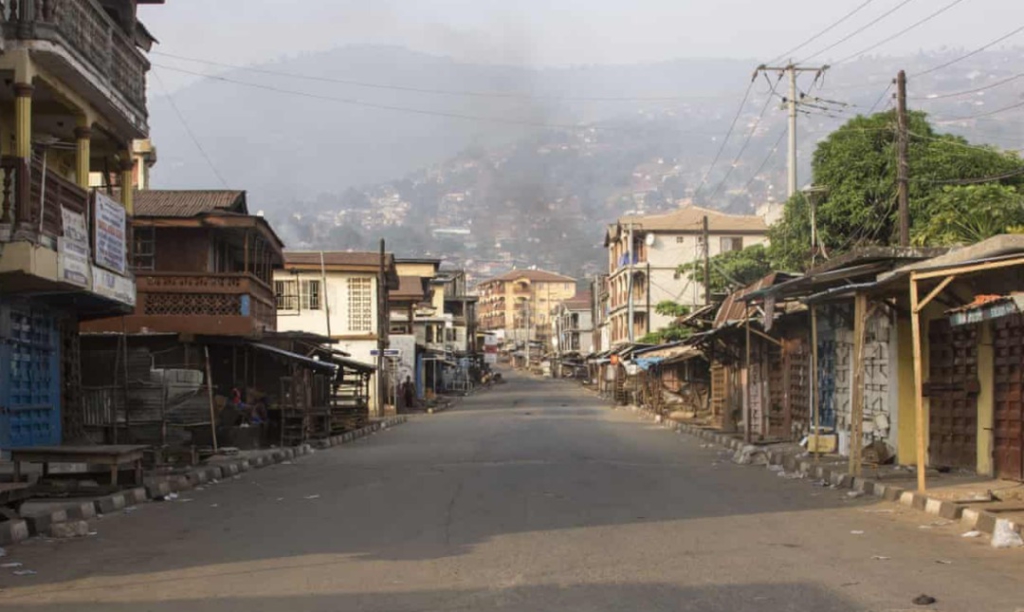The world needs a different kind of recovery from Covid-19. ‘Bouncing Forward’, is the necessary requirement for changing times ahead.
With infection rates and number of deaths not flagging, the world economy is confronted with its vilest dispensation since the global financial crisis of 2008. Markets continue to cartwheel, organizations tottering, stocks crashing, and systems tumbling as uncertainties continue to deepen due to enforced restrictions that have proven to be the only panacea to the world’s worst pandemic in a century.
Covid-19, a health scare in late December 2019 only grasped the attention of the world in January 2020 albeit only to interested persons who followed the spread and early consequences in the Chinese City of Wuhan, capital of the Hubei province. Wuhan, with a population of more than 10 million inhabitants rose to prominence for the wrong reason. Most of us by now are familiar with how a virus that was not sensed, even by the most well-lubricated predictive systems, spread from China to almost all of the United Nations 193 sovereign states worldwide, wreaking havoc that may take decades to repair. Cases are approaching two million, with fatalities atop 100, 000, across rich and poor, young and old, careful and carefree. The resulting feeling is that the worst is yet to happen.
In the world of business, markets continue to flip, recording declines far more devastating than 12 years ago when the global economy suffered what infamously became ‘the global financial crisis’. This continues to engender discussions at national, regional, and global levels with the view of proposing strategies for fiscal interventions to save economies, markets, and organizations.
With the attention of the world firmly placed on finding a cure and subsequent vaccine against any future reprisal, the work of economic policy makers and managers have focused on how to recover a global economy upset by the effect of a virus. The world is familiar with the concept of ‘bouncing back’ after disruptions and several experts are predicting a return to normalcy. But this may not be any usual recovery, rather, a different kind of rebounding which I refer to as, ‘bouncing forward’. This kind of revival will have at the heart of it, adaptive change spurred by reconfiguration.
To better appreciate the concept of ‘bouncing forward’, conceivably, a lesson in the study of resilience across a number of disciplines including ecology, psychology, engineering, and organizational behaviour and strategic management provides a good basis.

Experts in the field of organizational behaviour and strategic management research conceive that an organization is a system that is made up of a network of interrelated elements or components. These interact through linear and nonlinear relationships to form a unique identity. Across the fields of engineering, ecology, and human psychology, the same conceptualization of a system holds significance.
These economic and organizational systems are built with resources (tangible and intangible), through processes and routines, principally to ensure the delivery of day to day activities and targets but also to survive disruptions of any kind.
Like the human immune system that has been identified as a necessary factor in the fight against covid-19, the condition of the system can either neutralize the effect of this pandemic or fail. Economic systems are threatened by the covid-19 pandemic and it is a certainty that some organizations will perish just as the human lives that have been lost due to this pandemic.
Have we asked what will happen to systems after this pandemic?
The world will change significantly with momentous effects on consumerism, technology, even geopolitical trends, tourism, regulations, conditions of work, healthcare awareness, and systems and investment patterns. These changes will impact the systems alluded to beforehand. Strategic plans developed prior to this massive disruption caused by covid-19 will be less relevant for anticipated changes and organizational systems will need to be reconfigured. This pandemic has created a ration of stress but several discreet opportunities too that will take a largely pre-emptive outlook to detect.
The world is familiar with the concept of ‘bouncing back’ after a disruption, which explains systems returning to former means prior to crisis. But the changes predicted by experts will require more than replicating previous routines and processes.
Systems, once they begin to show decay, as this covid-19 pandemic has revealed, are hard to reverse and expectations for normalcy to be restored without reconfiguring would be a grave bargain for failure.
Through the prevailing ‘sensation’ of the internet that allows for an inordinate access to researchers’ ongoing collective learning in the palm of our hands, we are exposed to suggestions that systems will need to respond continuously to ongoing changes rather than return to previous performance routines when faced with situations pushing to advance beyond old practices.
Thus a commitment by economies and organizations to a revival based on reconfiguring resources, routines, and processes is the new reality for adaptive change.
When economies and organizations focus on ‘bouncing forward’ from covid-19 through adaptive change, policy makers and implementers will be instigating a forward-looking approach to recovering from this crisis. Deliberately preparing now for life post covid-19 and its impact across compasses could turn what is a difficult situation into a rip-roaring change that harnesses new opportunities and also ensure economies and organizations ‘bounce forward’.
Failure to adequately prepare for the changes brought on by covid-19 now is akin to standing aloof as though nails have been secretly riveted through the feet to the floor. Amazon changed the landscape of retailing, allowing customers to have just about anything, delivered to their doorstep, long before it became visible to others. The stage may be set for focusing on building resilience for systems more than ever before.
Latest Stories
-
Diplomatic Corps hail Bawumia’s integrity and leadership qualities
21 minutes -
To chocolate, Ghana’s pride by Bioko
39 minutes -
Chartered Institute of Bankers, Ghana, confers Honorary Fellow status on Victor Yaw Asante
1 hour -
BoG marks end of year with Thanksgiving Service
1 hour -
Ghana’s Next Sports Minister: The Debate Begins
1 hour -
Election 2024: NPP advised to be mindful of the reasons being ascribed to their election lost
2 hours -
GNFS urges Ghanaians to prevent fires during yuletide
2 hours -
Report tobacco users who smoke publicly – FDA advises
2 hours -
Abdallah Ali-Nakyea elevated to Associate Professor at UG School of Law
3 hours -
Kick2build commissions 5 libraries in Klo Agogo, donates school supplies
3 hours -
Slim and Fit Ghana donates to kids at Motherly Love Orphanage in Kwabenya
3 hours -
We’ll be reorganising ourselves for the battles of tomorrow – NPP
3 hours -
Ghanaian teacher Morkporkpor Fiador’s GWR Read-A-Thon attempt postponed
3 hours -
Revocation of licences of UT, Capital banks were strict requirements from IMF – Dr. Addison
3 hours -
MP Cynthia Morrison among 280 members expelled by Agona West NPP
3 hours

